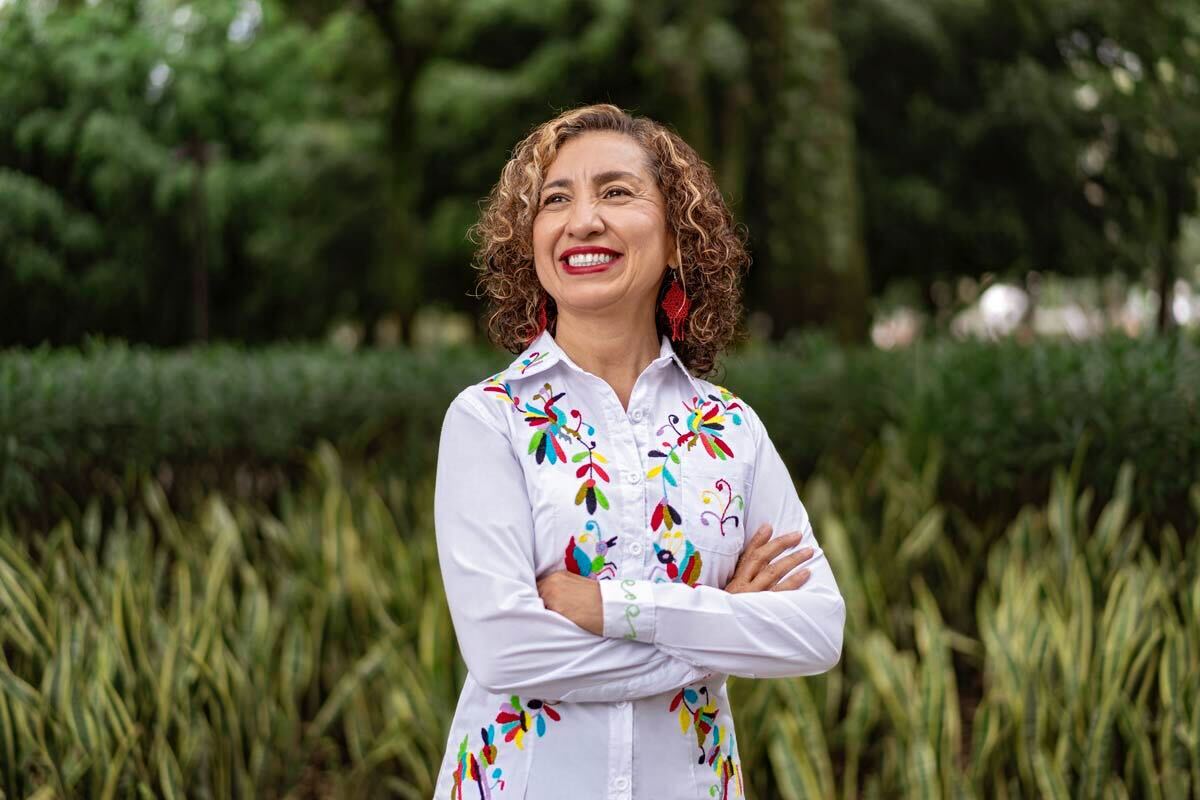Seeing a woman in spaces stereotypically occupied by men is motivation enough for many girls and young women who want to pursue a career in Science, Technology, Engineering and Mathematics (STEM).
Within STEM, UN Women recognizes that the most male-dominated educational areas are Information and Communication Technologies (ICT) and Engineering, areas where female enrollment is less than 30%; a low number considering that women also hold less than 25% of positions in other industry areas such as Artificial Intelligence.
Researchers from the School of Engineering and Sciences at Tec de Monterrey, Marilena Antunes (Researcher in the Healthy Food Unit at the Institute for Obesity Research IOR), Mariana Franco (Postdoctoral Researcher focused in Microalgae Production), Karla Mayolo-Deloisa (Professor-Researcher in the Bioengineering and Medical Devices Unit within the IOR), Anayansi Escalante (Professor-Researcher) and Mirna A. González (Professor-Researcher at the School of Medicine and Health Sciences) open the dialogue about their approach to technological careers, mentoring the upcoming generations and the importance of forging networks amongst women in these disciplines.
“Seeing the newer generations of women enter these fields is very inspiring. In the words of a student of mine: Being able to see that a woman has already made it and is currently working in the position that I aspire to reach is motivating, because then you know it is possible to do it,” shared Mirna.

Curiosity, Experimentation and Family Support
Having a persistent sense of curiosity from an early age was a vital element in their approach to what would eventually become their disciplines of study, this in addition to the support from their close family members, the researchers agreed.
In Karla’s case, the path was always oriented towards a career in Science and Technology. She recalls seeing the flasks, the test tubes and realizing from that small approach that her dreams were held in technological labs.
“When I think about what inspired me to be a woman in Science and Technology, I remember my high school years, when we started going into the labs and I fell in love with them. I was also inspired by seeing a female teacher who worked at the labs a lot,” said Marilena.
Mirna and Anayansi emphasize that, along with curiosity, having family members involved in Science encouraged them to pursue this occupation instead of rejecting it.
“Something that impacted me deeply as a child were the science fairs, the typical experiments with light bulbs or erupting volcanoes. I remember an uncle inviting me to his lab to experiment with different samples for my project and from there I didn’t stop,” said Mirna.
It is estimated that nine out of 10 girls between the ages of six and eight associate engineering with masculine skills, thus, the researchers recognize the importance of having had other women as key influences during their careers.
“My mom inspired me greatly when I started out like the rest of my family in the health field, as a nutritionist. Later on I realized that if I was going to do the same thing for the next 30 years of my life, it would be something more challenging like Food Engineering,” Anayansi recalled.
Personal and professional life balance
Despite the progress in achieving a greater inclusion of girls and women in the areas of Science and Research, both Antunes and Mayolo-Deloisa reflect on the persistence of biases and judgment surrounding a woman’s life decisions and whether they will affect their careers.
In this regard, they question whether the dialogue that is needed should be more about how to support each other to achieve a more equal balance between their personal and professional lives.
“We still need to work on our internal biases, for example: not judging girls and women for their character, dreams or life plans, as these do not make them any less capable than others,” said Mayolo-Deloisa.
“Unfortunately, it is still common for a woman to be limited by whether she marries or has children. This sometimes prevents young women to enter these paths because they believe that it will be impossible to achieve everything,” added Antunes.
Franco was grateful for the opportunity she has had to work with other women, especially in the Environmental Engineering sector.
“As fate would have it, until recently I have had the chance to collaborate with more women and it is such a beautiful environment that I cannot describe it with any other words other than love. I feel embraced, like I am no longer alone and I truly belong.“
In this regard, she stressed the importance of generating networks to take care of each other and support each other considering how challenging the environment can become.
From one generation to another, tips for future STEM girls
Through mentoring and their own backgrounds, these researchers have been able to connect with young women and girls who show even the tiniest interest in pursuing a field of Science and Technology, offering them guidance stemming from their life-experiences.
“It is a path full of challenges, absolutely, but if it is your passion, the message is simple: don’t be afraid, and even if you are afraid, do it with fear, but do it,” Mirna encouraged.
González also addressed her colleagues with a more advanced career by saying that it is imperative to continue opening the way so that future generations do not have to face the same obstacles they have experienced, but new challenges in their own fields.
Reaching out to others and acting as a role model instead of “stand in their way”: that is the common ground among all women researchers who, despite enduring diverse difficulties to get where they stand now, they continue to push girls and women to pursue STEM careers and areas in ICT.
Did you find this story interesting? Would you like to publish it? Contact our content editor to learn more at marianaleonm@tec.mx


















